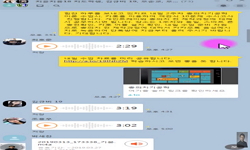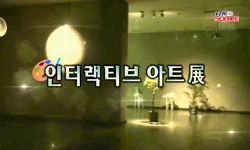Uijeon Yuk Yong-jeong is known for his Uijeon Gisul, the collection of writings in which he systematically developed his thoughts on enlightenment. But his literary works nowadays have also attracted notice from academics. This study is an attempt to ...
http://chineseinput.net/에서 pinyin(병음)방식으로 중국어를 변환할 수 있습니다.
변환된 중국어를 복사하여 사용하시면 됩니다.
- 中文 을 입력하시려면 zhongwen을 입력하시고 space를누르시면됩니다.
- 北京 을 입력하시려면 beijing을 입력하시고 space를 누르시면 됩니다.
좌절과 모색의 경계: 개화 지식인 의전(宜田) 육용정(陸用鼎)의 인물전 연구 = Between Frustration and Grope: Study of the Biographical Writings of Uijeon Yuk Yong-jeong
한글로보기부가정보
다국어 초록 (Multilingual Abstract)
This study tries to find the meaning of Yuk Yong-jeong’s biographical works in the context of narratives in his era through analyzing those five works and deriving the crucial characteristics from them.
His five biographical works -- The Life of Mo So-sa, a Soldier’s Wife, The Life of Song So-hab, The Life of Gaeja, Lee Suk-ju, The Life of Doja, Kim Dong-gan, and The Life of Lee Sung-sun -- are all about low-class people, among whom some had experienced social and economic failure. These works show a transformation of existing forms of biographical writings because they tend to only very briefly give a person’s genealogy and generally not offer any conclusive judgment about the person. Moreover, many of the episodes recounted in them presented dead drunkenness, money-oriented attitudes, homosexuality, and violence, all of which were far from Confucian virtues. Due to these elements, Yuk Yong-jeong’s biographical works offer characteristics of raw rhetoric and a coarse aesthetic sensibility in an atmosphere of vulgarity.
These characteristics found in his biographical works demonstrate a tendency different from his other genres, such as epitaphs and records of a deceased person’s life, in which he told normative narratives conforming to Confucian values. In his biographical writings, his views on perverse and minor people whose lives did not conform to Confucian values are neither negative nor judgmental, but accepting. Yuk Yong-jeong’s biographical works are found to have much in common with contemporary narrative, such as the new novel, in that there appeared a lot of low-class people and sensational episodes about sex and violence. This kind of aesthetically coarse sensibility of his works can be interpreted as follows: first, it may express pessimistic views on an uncertain and unpredictable future depicted as distorted desire; second, it might result from the attempt to find an alternative way of life in society on the part of Yuk Yong-jeong, a frustrated intellectual who believed in enlightenment thinking.
Uijeon Yuk Yong-jeong is known for his Uijeon Gisul, the collection of writings in which he systematically developed his thoughts on enlightenment. But his literary works nowadays have also attracted notice from academics. This study is an attempt to examine his five biographical writings. The reason that I decided to focus attention on these works is that they are noticeable in being distinctively different from other biographical writings of Chinese classics and that their aesthetic sensibility is unfamiliar and impressively strong.
This study tries to find the meaning of Yuk Yong-jeong’s biographical works in the context of narratives in his era through analyzing those five works and deriving the crucial characteristics from them.
His five biographical works -- The Life of Mo So-sa, a Soldier’s Wife, The Life of Song So-hab, The Life of Gaeja, Lee Suk-ju, The Life of Doja, Kim Dong-gan, and The Life of Lee Sung-sun -- are all about low-class people, among whom some had experienced social and economic failure. These works show a transformation of existing forms of biographical writings because they tend to only very briefly give a person’s genealogy and generally not offer any conclusive judgment about the person. Moreover, many of the episodes recounted in them presented dead drunkenness, money-oriented attitudes, homosexuality, and violence, all of which were far from Confucian virtues. Due to these elements, Yuk Yong-jeong’s biographical works offer characteristics of raw rhetoric and a coarse aesthetic sensibility in an atmosphere of vulgarity.
These characteristics found in his biographical works demonstrate a tendency different from his other genres, such as epitaphs and records of a deceased person’s life, in which he told normative narratives conforming to Confucian values. In his biographical writings, his views on perverse and minor people whose lives did not conform to Confucian values are neither negative nor judgmental, but accepting. Yuk Yong-jeong’s biographical works are found to have much in common with contemporary narrative, such as the new novel, in that there appeared a lot of low-class people and sensational episodes about sex and violence. This kind of aesthetically coarse sensibility of his works can be interpreted as follows: first, it may express pessimistic views on an uncertain and unpredictable future depicted as distorted desire; second, it might result from the attempt to find an alternative way of life in society on the part of Yuk Yong-jeong, a frustrated intellectual who believed in enlightenment thinking.
참고문헌 (Reference)
1 하지영, "陸用鼎의 記夢 연작 연구" 한국고전연구학회 (22) : 391-424, 2010
2 신재홍, "한국몽유소설연구" 계명문화사 405-429, 1994
3 김경미, "젠더 위반에 대한 조선사회의 새로운 상상-<방한림전>" 한국고전연구학회 0 (0): 189-216, 2008
4 육용정, "의전선생문집 1" 경인문화사 1993
5 조혜란, "육용정의 「군인처모소사전」을 읽는 한 가지 방식" 한국문화연구원 19 : 33-59, 2010
6 조혜란, "유배서사로서의 <기우도(奇遇圖)> 연구" 한국학중앙연구원 28 (28): 209-236, 2005
7 김주현, "외모 꾸미기 미학과 페미니즘" 책세상 39-78, 2009
8 김수연, "열녀전의 경계와 균열" 동악어문학회 (55) : 69-98, 2010
9 김경미, "소설의 매혹" 월인 116-123, 2003
10 정환국, "訟事小說의 전통과 『神斷公案』" 우리한문학회 23 : 529-556, 2010
1 하지영, "陸用鼎의 記夢 연작 연구" 한국고전연구학회 (22) : 391-424, 2010
2 신재홍, "한국몽유소설연구" 계명문화사 405-429, 1994
3 김경미, "젠더 위반에 대한 조선사회의 새로운 상상-<방한림전>" 한국고전연구학회 0 (0): 189-216, 2008
4 육용정, "의전선생문집 1" 경인문화사 1993
5 조혜란, "육용정의 「군인처모소사전」을 읽는 한 가지 방식" 한국문화연구원 19 : 33-59, 2010
6 조혜란, "유배서사로서의 <기우도(奇遇圖)> 연구" 한국학중앙연구원 28 (28): 209-236, 2005
7 김주현, "외모 꾸미기 미학과 페미니즘" 책세상 39-78, 2009
8 김수연, "열녀전의 경계와 균열" 동악어문학회 (55) : 69-98, 2010
9 김경미, "소설의 매혹" 월인 116-123, 2003
10 정환국, "訟事小說의 전통과 『神斷公案』" 우리한문학회 23 : 529-556, 2010
11 황재문, "宜田 陸用鼎의 文學과 現實認識" 우리한문학회 22 : 33-67, 2010
12 백승종, "<의전기술>을 통해서 본 육용정의 개화사상" 18 : 41-78, 1989
13 민회수, "1880년대 육용정의 현실인식과 동도서기론" 서울대 국사학과 48 : 109-168, 2002
동일학술지(권/호) 다른 논문
-
‘미학의 정치’에 있어 유희의 역할: 랑시에르의 칸트 이해를 중심으로
- 이화여자대학교 이화인문과학원
- 성기현
- 2011
-
'기’(氣)와 ‘리’(理)의 여행: 중국 고대 회화에서 들뢰즈의 영화철학까지
- 이화여자대학교 이화인문과학원
- 이찬웅
- 2011
-
폴 리쾨르의 칸트 전유: 20세기 프랑스 반성철학의 정당성 확보를 위한 새로운 접근
- 이화여자대학교 이화인문과학원
- 김동규
- 2011
-
- 이화여자대학교 이화인문과학원
- 정하영
- 2011
분석정보
인용정보 인용지수 설명보기
학술지 이력
| 연월일 | 이력구분 | 이력상세 | 등재구분 |
|---|---|---|---|
| 2028 | 평가예정 | 재인증평가 신청대상 (재인증) | |
| 2022-01-01 | 평가 | 등재학술지 유지 (재인증) |  |
| 2019-01-01 | 평가 | 등재학술지 선정 (계속평가) |  |
| 2017-12-07 | 학술지명변경 | 한글명 : Trans-Humanities -> 탈경계인문학Trans-Humanities |  |
| 2017-01-01 | 평가 | 등재후보학술지 선정 (신규평가) |  |
| 2016-12-01 | 평가 | 등재후보 탈락 (계속평가) | |
| 2014-01-01 | 평가 | 등재후보학술지 선정 (신규평가) |  |
| 2009-06-11 | 학회명변경 | 영문명 : Ewha Institute for Humanities: EIH -> Ewha Institute for the Humanities: EIH |




 KCI
KCI






